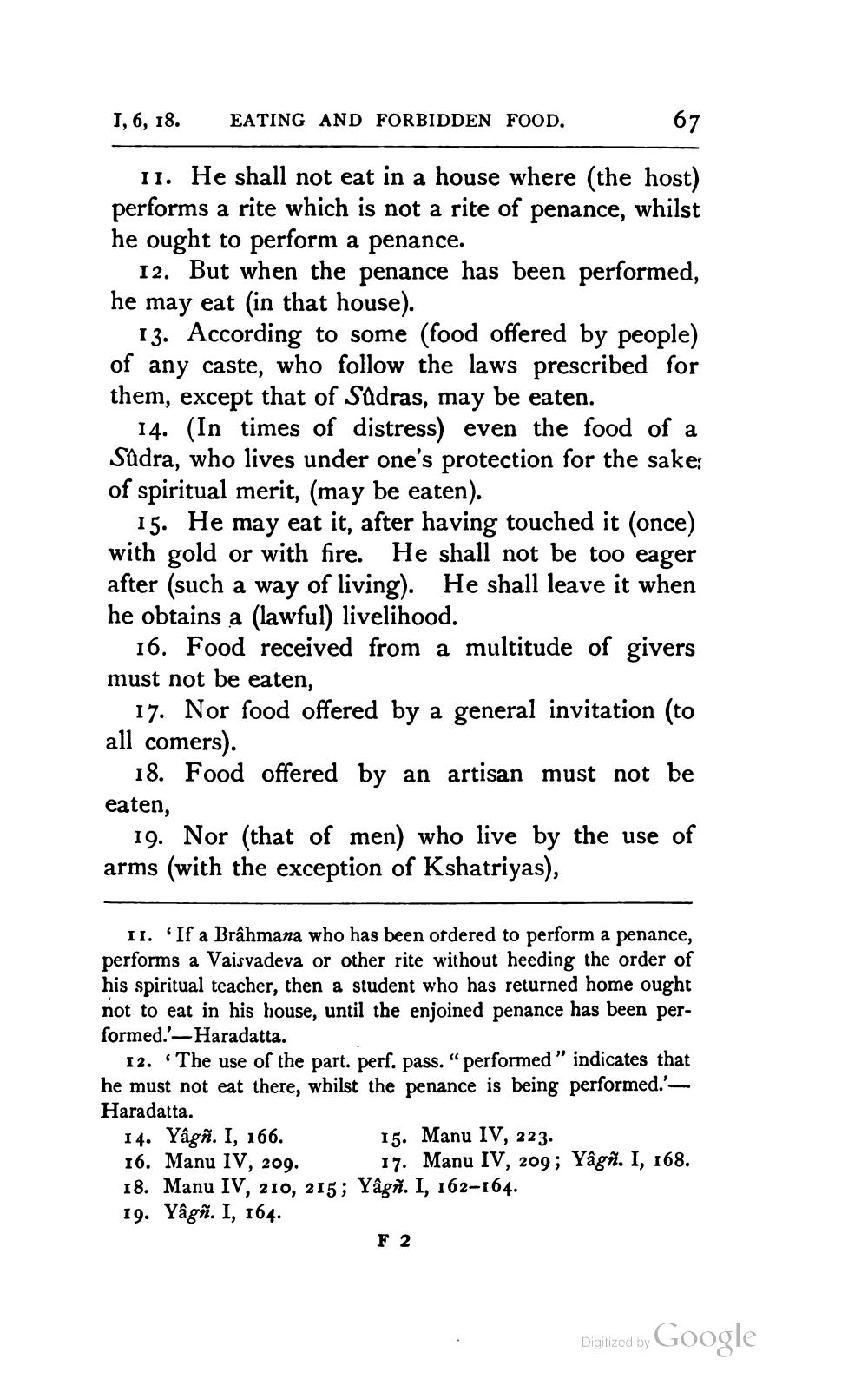________________
67
I, 6, 18. EATING AND FORBIDDEN FOOD.
II. He shall not eat in a house where (the host) performs a rite which is not a rite of penance, whilst he ought to perform a penance.
12. But when the penance has been performed, he may eat (in that house).
13. According to some (food offered by people) of any caste, who follow the laws prescribed for them, except that of Sûdras, may be eaten.
14. (In times of distress) even the food of a Sudra, who lives under one's protection for the sake: of spiritual merit, (may be eaten).
15. He may eat it, after having touched it (once) with gold or with fire. He shall not be too eager after (such a way of living). He shall leave it when he obtains a (lawful) livelihood.
16. Food received from a multitude of givers must not be eaten,
17. Nor food offered by a general invitation (to all comers).
18. Food offered by an artisan must not be eaten,
19. Nor (that of men) who live by the use of arms (with the exception of Kshatriyas),
II. 'If a Brahmana who has been ordered to perform a penance, performs a Vaisvadeva or other rite without heeding the order of his spiritual teacher, then a student who has returned home ought not to eat in his house, until the enjoined penance has been performed.'-Haradatta.
12. The use of the part. perf. pass. " performed" indicates that he must not eat there, whilst the penance is being performed.'Haradatta.
14. Yâgñ. I, 166.
16. Manu IV, 209.
15. Manu IV, 223.
17. Manu IV, 209; Yâgñ. I, 168.
18. Manu IV, 210, 215; Yâgn. I, 162-164. 19. Yâgn. I, 164.
F 2
Google
Digitized by




